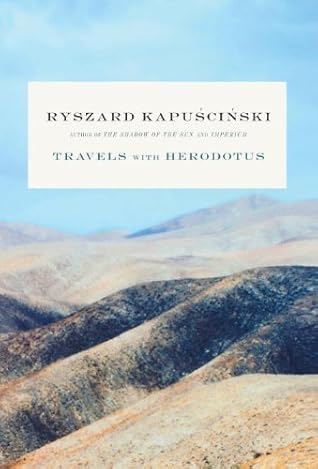More on this book
Community
Kindle Notes & Highlights
otherness,
Jean-Jacques Rousseau.
then one reckons with hundreds upon hundreds of millions of hours spent building walls, hours which in this poor country could have been spent learning to read, acquiring a profession, cultivating new fields, and breeding robust cattle.
That is how the world’s energy is wasted. In complete irrationality! Complete futility! For the Great Wall—and it is gigantic, a wall-fortress, stretching for thousands of kilometers through uninhabited mountains and wilderness, an object of pride and, as I have mentioned, one of the wonders of the world—is also proof of a kind of human weakness, of an aberration, of a horrifying mistake; it is evidence of a historical inability of people in this part of the planet to communicate, to confer and jointly determine how best to deploy enormous reserves of human energy and intellect.
In these parts, the idea of coming together was but a chimera: The very first reflex in the face of potential trouble was to build a wall. To shut oneself in, fence oneself off. Because whatever comes from without, from over there, can only be a threat, an omen of ...
This highlight has been truncated due to consecutive passage length restrictions.
The worst aspect of the wall is to turn so many people into its defenders and produce a mental attitude that sees a wall running through everything, imagines the world as being divided into an evil and inferior part, on the outside, and a good and superior part, on the inside.
I take it all in, touch the boulders dragged here centuries ago by people dropping from exhaustion. To what end? What sense does it make? Of what use is it?
It was a kind of malady, a dangerous weakness, because I also realized that these civilizations are so enormous, so rich, complex, and varied, that getting to know even a fragment of one of them, a mere scrap, would require devoting one’s whole life to the enterprise. Cultures are edifices with countless rooms, corridors, balconies, and attics, all arranged, furthermore, into such twisting, turning labyrinths, that if you enter one of them, there is no exit, no retreat, no turning back. To become a Hindu scholar, a Sinologist, an Arabist, or a Hebraist is a lofty, all-consuming pursuit,
...more
Whereas I had the urge to submit to such seductions, I also remained attracted to what lay beyond the confines of their respective worlds—I was tempted by people still unmet, roads yet untraveled, skies yet unseen. The desire to cross the border, to look at what is beyond it, stirred in me still.
The world once again presented itself to me as something impossible to even begin to comprehend, let alone master.
Perhaps he had a naturally inquiring mind, a mind that continuously generated a thousand questions giving him no peace, keeping him up at nights?
happen—how did he find the time to satisfy it, year after year after year?
Herodotus admits that he was obsessed with memory, fearful on its behalf. He felt that memory is something defective, fragile, impermanent—illusory, even. That whatever it contains, whatever it is ...
This highlight has been truncated due to consecutive passage length restrictions.
If he is a child, his teacher will tell him everything he needs to know; if he is a university student, he will be informed by his professors.
Man knew as much, and only as much, as his mind managed to preserve.
Culture was always an aristocratic enterprise.
In the world of Herodotus, the only real repository of memory is the individual.
Heraclitus, who lived before Herodotus, considered fire to be the origin of all matter, the primordial substance. Like fire, he said, everything is in eternal motion, everything is extinguished only to flare up again. Everything flows, but in flowing, it undergoes transformation.
Man not only creates culture, inhabits it, he carries it around within him—man is culture.
human happiness never remains long in the same place.
if reason ruled the world, would history even exist?
a man whose dignity was undermined, who felt himself humiliated, could free himself from the burning sensation of shame and disgrace only by an act of self-destruction.
another of Herodotus’s rules, that it seems to be easier to fool a crowd than a single person)
One could see clearly how dangerous freedom is in the absence of hierarchy and order—or, rather, anarchy in the absence of ethics.
“We have neighbors, they in turn have their neighbors, and all together we populate a single planet.”
ponder Thomas Mann’s observation that “a writer is a man for whom writing is more difficult than it is for others.”
within every great book there are several others.
Aristodamus.
people remember what they want to remember, not what actually happened.
One had to demonstrate genuine hospitality to a new arrival, because one could never be certain whether this wanderer asking for food and a roof over his head was merely a man, or in fact a god who had assumed human form.
The average person is not especially curious about the world. He is alive, and being somehow obliged to deal with this condition, feels the less effort it requires, the better.


